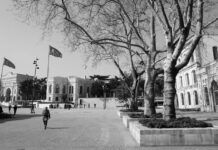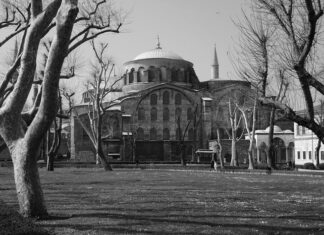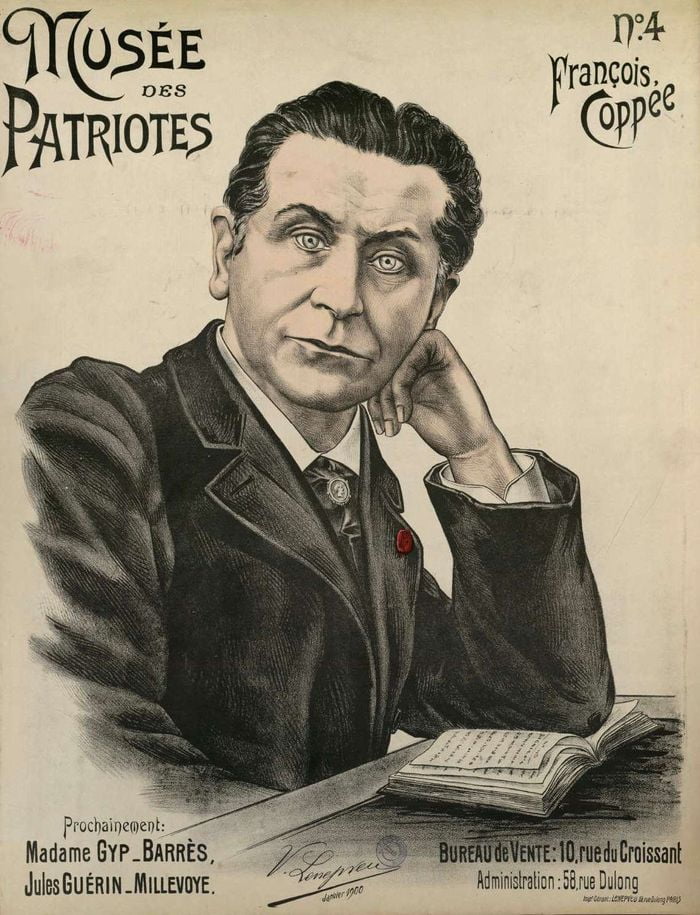By now Theoderic was the self-assured and supreme master of the Roman empire’s Italian domains, with secure control of the approaches to Italy from all land directions—from the Balkans, from across the Alps to the north, and from Gaul. He had to watch for threats from Clovis in Gaul and from the Vandals in Africa, but neither truly unsettled him, and Theoderic had the diplomacy to manage both. Constantinople was still the 900-pound gorilla of the Roman world. Occasional brushes with the empire’s raiders and hints of rapprochement between Anastasius and Clovis would hold Theoderic’s attention, but he was at least certain of the loyalty of his own citizens—mostly.
Theoderic had one particular assurance
He earned that loyalty by governing well, by settling his forces in Italy without gross disruption, and by convincing both the senatorial classes and the high churchmen that order and tradition were on his side. Could anyone else have persuaded them that perhaps another way existed to ensure their dignity and future ? Perhaps, but from the time of his arrival in Italy, Theoderic had one particular assurance that Italy’s aristocracy would not be looking eastward for such persuasion: ecclesiastical animosity. In 484, the bishop of Rome formally broke off relations with the bishops of Constantinople over points of theology and imperial interference. A sympathetic member of the community of “sleepless monks” in Constantinople pinned the decree of excommunication from Rome to the back of the patriarch Acacius’s vestments while Acacius celebrated the Eucharist. The Acacian schism gave the Roman church the serene confidence that it knew the true religion and that Constantinople fell short. Constantinople might again come to its senses, but for the moment, Romans who traveled there were instructed not to share communion with any of those so-called Christians.
If Theoderic’s own old-fashioned Arian religion separated him in principle from Italy’s Catholics, he could modulate that division by generosity, as we have seen him do in both Italy and Gaul. As long as the Christians of the first families of Rome and their allies in the church hierarchy were supercilious and judgmental about the Christians of Constantinople, the western detente would hold. If Rome and Constantinople began to speak of reconciliation and harmony, then Theoderic’s religion, shaky enough in any case, would be the anomaly. Then the notion of ecclesiastical harmony between Rome and Constantinople might open Romans to persuasion that they should listen to Constantinople on other grounds. And for Theoderic, that was the real threat tailor-made bulgaria tours.
Theoderic was careful to cultivate
So for all his reign, Theoderic was careful to cultivate and support the senatorial dignitaries, as much as Odoacer did. Boethius’s father and his father-in-law Symmachus had won the consulship under Odoacer. If the highest offices sometimes were given to reward the loyalty of arrivistes like Liberius, at least as often they graced the old and wealthy families. Boethius was not to be disappointed. In the year 510, at a moment of Theoderic’s highest confidence, Boethius, age thirty or so, acceded to the consulship without a colleague, and gave his name to the year, and Boethius had the satisfaction of knowing that men would always remember 510 in their annals by his name.
Grander rewards awaited. In 522, Boethius had the honor—unheard of for more than a century among Roman citizens not of the imperial family—of seeing his two sons share the consulship in the same year. He must have found this triumph gaspingly expensive, but no one would have been in a better position to bear the burden of proclaiming by ostentatious expenditure just how glorious his family was.
At the same time, Theoderic invited Boethius to stand next to the throne. In 522-523, he was called to Ravenna to serve as magister officio- rum, master of the offices. In this role, he supervised the civil bureaucracy and also the coming and going of ambassadors and missions to and from Constantinople and to and from the courts of other rulers in the western Mediterranean. One might think of him as minister of foreign affairs.
Read More about Liberius’s world for the next quarter century








